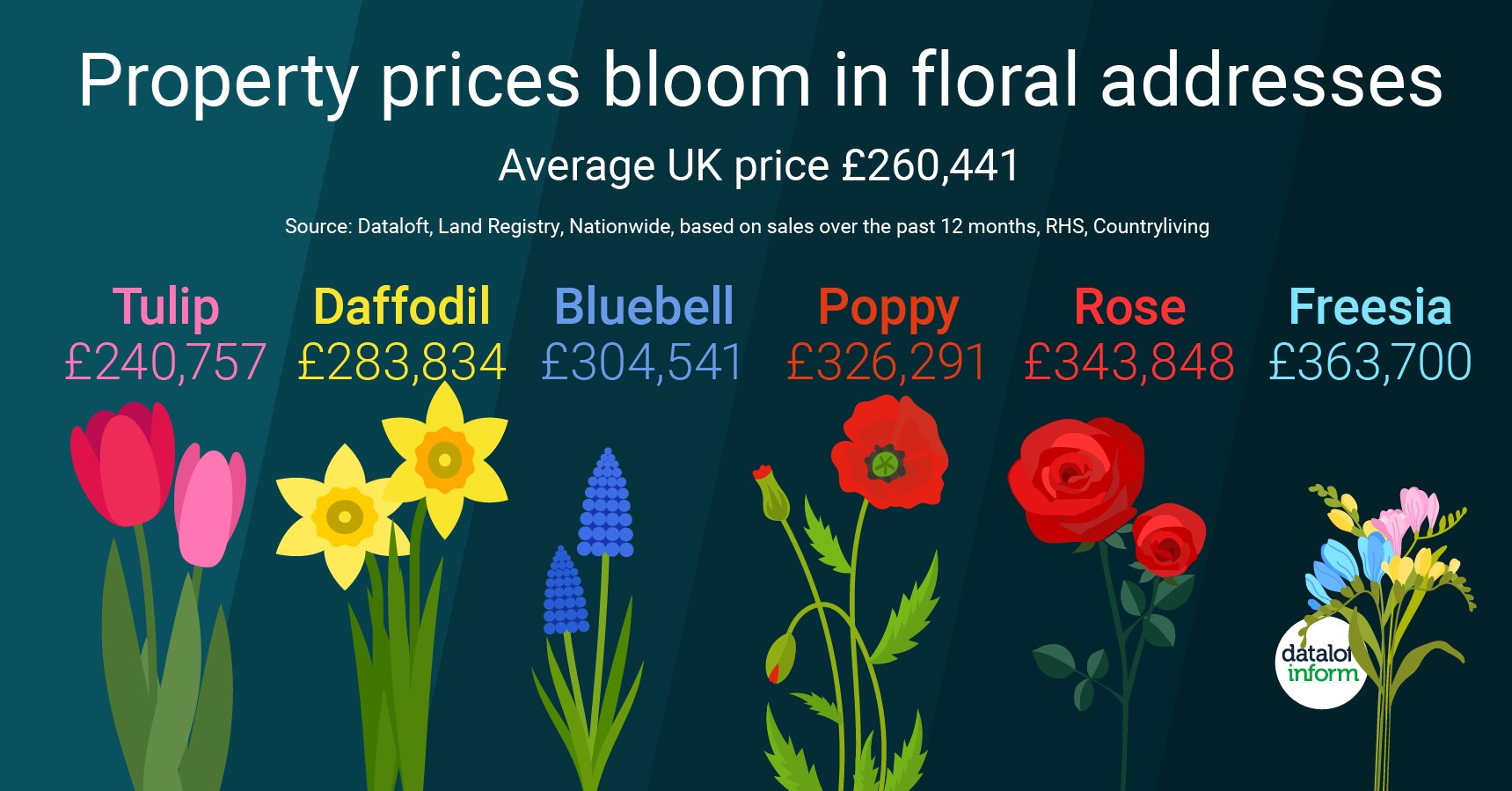
The Chelsea Flower Show, an iconic event that celebrates the beauty of nature, recently marked its 110th year. Thousands of plant enthusiasts gathered to witness the stunning display of plants and flowers, showcasing the passion and creativity of garden lovers. Coincidentally, in the realm of residential real estate, floral names have become a popular trend. With over 1,300 property sales in the past year occurring on streets named after beloved UK flowers, it's evident that the allure of nature extends beyond gardens. In this article, we explore the significance of floral street names and their relationship to property sales, while also shedding light on the importance of gardens for the environment.
Floral Street Names and Property Sales:
The charm of floral street names has captivated homebuyers across the United Kingdom including Crawley. According to recent data from Dataloft and the Land Registry, streets named after flowers have witnessed a significant number of property sales. Among the popular floral street names, Rose takes the lead as the most sought-after, followed closely by Bluebell. The resonance of these names with potential homeowners highlights the appeal of associating one's address with the beauty and elegance of nature. In fact, properties on streets named after flowers such as Rose, Poppy, Bluebell, Orchid, and Sunflower have, on average, surpassed the current national average home price of £260,441 (Nationwide).
Embracing Nature: Gardens and Homeownership:
Gardens hold a special place in the hearts of many individuals, and it comes as no surprise that an estimated 87% of UK households possess one. These private green spaces serve as havens for homeowners, offering a respite from the demands of daily life and providing an opportunity to connect with nature. Beyond their personal benefits, gardens also play a crucial role in supporting local ecosystems. They provide habitats for bees, butterflies, and other pollinators, essential for the health and diversity of flora and fauna. Recognizing this importance, a national campaign called No Mow May has emerged, encouraging homeowners with lawns and verges to allow them to grow freely during the month. By participating in No Mow May, individuals contribute to the well-being of pollinators and create vibrant ecosystems within their own properties.
Conclusion:
As the Chelsea Flower Show commemorates its 110th year, the enduring passion for plants and flowers remains evident. The rising trend of property sales on streets bearing floral names reflects the deep connection individuals have with nature. Beyond the aesthetics, this trend highlights the desire to infuse the spirit of the natural world into our daily lives, even through our addresses. Moreover, the prevalence of gardens across the UK signifies the importance of green spaces and their positive impact on the environment. By fostering gardens and participating in initiatives like No Mow May, homeowners can create sanctuaries for themselves while supporting the delicate balance of local ecosystems. As we celebrate the harmony between homeownership and nature, let us continue to cherish and nurture the beauty that surrounds us, both inside and outside our homes.









